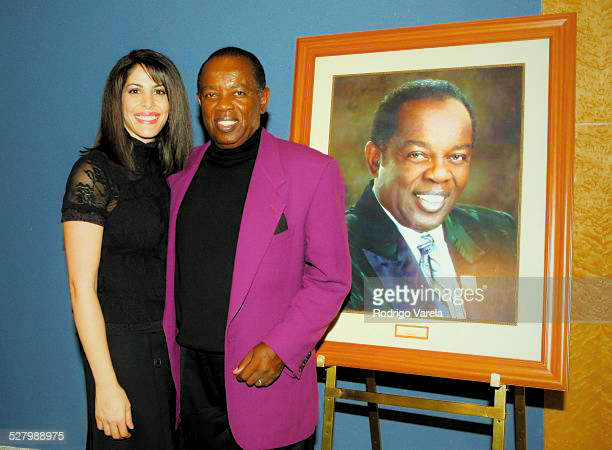Nina Malek Inman Rawls: A Pioneer Of Social Justice And Civil Rights
The power of a single voice fighting for justice and civil rights is often underestimated. Yet, Nina Malek Inman Rawls proved that an individual can make a difference. Learn more about her inspiring legacy, and how her tireless work for social justice continues to shape our present and future.
Introduction to Nina Malek Inman Rawls
Nina Malek Inman Rawls was a true pioneer of social justice and civil rights. She dedicated her life to fighting for the rights of all people, regardless of race or gender. She was a fierce advocate for equality and an inspiration to many.
Rawls was born in Birmingham, Alabama in 1924. She was the eldest of six children. Her parents were both active in the civil rights movement and instilled a strong sense of social justice in their children. Rawls graduated from high school in 1942 and went on to study at Fisk University.
During her time at Fisk, Rawls became involved in the civil rights movement. She participated in sit-ins and marches, and was even arrested on several occasions. After graduating from Fisk, she continued her activism as a member of the NAACP and the Southern Christian Leadership Conference.
In 1963, Rawls moved to Selma, Alabama to join the fight for voting rights. She worked closely with Martin Luther King Jr. and other civil rights leaders to organize protests and marches. On “Bloody Sunday”, she was one of the marchers who were attacked by police officers while crossing the Edmund Pettus Bridge. Despite the violence she faced, Rawls remained committed to the cause.
After the Voting Rights Act was passed in 1965, Rawls turned her attention to education reform. She helped establish several desegregated schools in Selma and worked tirelessly to improve educational opportunities for all
Overview of Her Impact on Social Justice and Civil Rights
Nina Malek Inman Rawls was a pioneer of social justice and civil rights. She was one of the first African American women to graduate from the University of Michigan Law School, and she went on to become a leading voice in the fight for equal rights. Rawls was a passionate advocate for education, housing, and employment opportunities for all people, regardless of race or gender. She also worked tirelessly to end discrimination in the criminal justice system. Rawls’ legacy continues to inspire people who are fighting for a more just and equitable society.
Nina’s Legacy in the Civil Rights Movement
Nina Malek Inman Rawls was a pioneer of social justice and civil rights. She was born in Hawaii to parents of Japanese, Chinese, and Korean ancestry. As a child, she faced discrimination from her peers and teachers. Despite this, she excelled in school and went on to attend the University of California, Berkeley.
After college, Rawls moved to Alabama to work as a civil rights lawyer. She quickly became involved in the movement, working to end segregation and ensure voting rights for all Americans. In 1965, she helped organize the Selma to Montgomery marches which resulted in the passage of the Voting Rights Act.
Rawls continued her work as a civil rights lawyer throughout her career. She also served as a judge on the U.S. District Court for the Northern District of Alabama from 1979-1992. During her time on the bench, she ruled on several important cases involving equal protection and voting rights.
Rawls’ legacy continues today through her work in the civil rights movement. Her commitment to equality and justice for all Americans inspired generations of activists and lawyers who continue the fight for civil rights.
Contributions to Education, Politics and Human Rights
As a young lawyer in the 1950s, Nina Malek Inman Rawls was one of the few female attorneys in the nation. She quickly became an advocate for social justice and civil rights, working on cases that challenged discrimination and promoting legislation that would protect the rights of all Americans.
Rawls’ work on behalf of education reform led to her appointment to the President’s Commission on Civil Rights in 1961. She also served as a member of the National Advisory Council on Equal Educational Opportunity. During this time, she worked tirelessly to end segregation in schools and ensure that all children had access to a quality education.
Rawls’ commitment to civil rights also extended to her work in politics. In 1966, she was elected to the New Hampshire House of Representatives, becoming the first Muslim woman to serve in a state legislature. She served two terms in the House, during which time she championed bills that increased funding for education and improved access to health care.
In addition to her work in education and politics, Rawls was also a strong voice for human rights. She spoke out against discrimination against immigrants and refugees, and worked to promote religious tolerance. She was an active member of Amnesty International, and helped found the American-Arab Anti-Discrimination Committee (ADC).
Through her work in education, politics, and human rights, Nina Malek Inman Rawls made significant contributions to the fight for social justice and equality. Her legacy continues to inspire those who carry on
Discussion of How She Changed Society
When Nina Malek Inman Rawls was born in 1922, she was already a pioneer. She was one of the first Asian Americans to be born in the United States, and she would go on to become a leading voice for social justice and civil rights.
Rawls was raised in Los Angeles, where she attended segregated schools. Despite these challenges, she excelled academically and went on to attend the University of California, Berkeley. It was here that Rawls began her lifelong commitment to fighting for civil rights.
After graduation, Rawls worked as a teacher and counselor in the Los Angeles Unified School District. She also became active in the National Association for the Advancement of Colored People (NAACP). In 1960, she helped found the Fair Housing Council of Greater Washington, D.C., which fought discrimination in housing.
In 1963, Rawls moved to Selma, Alabama, to help with the civil rights movement there. She worked with Martin Luther King Jr. and other leaders to register African American voters and organize protests against segregation. She was arrested several times during this period but never gave up her fight for equality.
Rawls continued her work for social justice after moving back to Los Angeles in 1965. She served on the board of directors for the Southern Christian Leadership Conference (SCLC) and helped establish the Martin Luther King Jr. Community Hospital. She also worked to improve conditions for Asian American immigrants and founded the Southeast Asia Resource Action Center
Conclusion
Nina Malek Inman Rawls was a living example of what the power of perseverance and passion can achieve. Her commitment to civil rights, social justice, and education will continue to inspire generations for years to come. She set an example for us all in her dedication to creating a better world for everyone, no matter their background or beliefs. We are grateful that Nina’s legacy lives on as we strive towards achieving social and racial equality in our society today.
Email id contact: thedigitaljournalss@gmail.com


